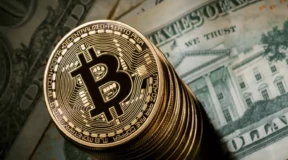My take on Nweala’s economic prescription
Ngozi Okonjo-Iweala, first woman as well as first African to hold the office of Director-General, World Trade Organization, WTO, visited Nigeria. He had several meetings with corporate players, top government officers and President Muhammadu Buhari.
At every meeting, the economist and international development expert dropped useful suggestions on how to reinvent the Nigerian economy.
But stakeholders have expressed worries saying it might just be one of those regular talk shows without implementation.
Among the voices is Professor Segun Ajibola, a first class Economics graduate of Ife who voluntary left the banking sector as managing director designate, Intercontinental Bank Plc East African Franchise, in 2009.
Professor Ajibola, who hails from Ekiti and now an academic, speaks exclusively to OpenLife Nigeria. His submissions “My take on Ngozi Okonjo-Nweala’s economic solutions,” are presented below
How do the recommendations of WTO DG, Dr. Ngozi Okonjo Nweala, stimulate Nigeria’s economy in the face of insecurity?
Security of lives and properties is a fundamental requirement for economic prosperity. Any paradigm shift in policy dimension must take the security situation into consideration. It is a key consideration by international investors and trading partners when assessing their investment options across the globe.
Dr Mrs Ngozi Okonjo-Iweala, I believe, had assumed an improved security situation when reeling out her action plans towards increasing Nigeria’s share of trade flows, war over dumping, improved capacity building and support to make AfCFTA beneficial to Nigeria and Africa in general. Of course, Nigeria needs to help her succeed and make its land more attractive to harness the benefits outlined by her. And security issues occupy a top priority for the government in its bid to propel growth in the trading volumes.
Many academic papers, proffering solutions to Nigeria’s economy are in the archives. Is there assurance that government would implement the WTO DG’s recommendations?
Policy implementation is equally a problem in Nigeria. Several bundles of documents containing research findings, propositions, road maps, etc are wasting away inside the cabinets and shelves of Ministries, Departments and Agencies. I had before advocated the setting up of a Ministry of Policy Implementation at the federal level to track the implementation of key policy initiatives and demand for accountability from those vested with such responsibilities. We pray the initiatives of the DG, WTO for Nigeria do not go down the drain due to poor or outright lack of implementation.
What are your concerns about the over 17.6 percent inflation in the economy?
Inflation and unemployment are regarded as the twin-evil in any economy. Inflation erodes value, creates distortions in planning, causes disequilibrium among macro economic indicators. Nigeria has been witnessing all these negative effects of inflation. The situation can be saved via improved ease of doing business, increased productivity in the key sectors of the economy and change in the orientation of Nigerians towards consuming what can be produced locally to remove imported inflation from the consumers’ price index.
Of course, Nigeria’s inflation is more of cost push inflation. The increased cost of production is being passed on by the producers to the consumers. Government has a role to play in reducing cost of basic amenities, infrastructures, raw materials, agriculture inputs, among others. Inflation worsens the living standard of the people. As at today, the elderly and retirees, bank depositors, salary earners are going through hard times.
This is because, at over 17% inflation rate compared to 4% returns on deposits and other liquid investments, the real rate of interest is negative 13% (representing the loss in the value of such investment annually).







